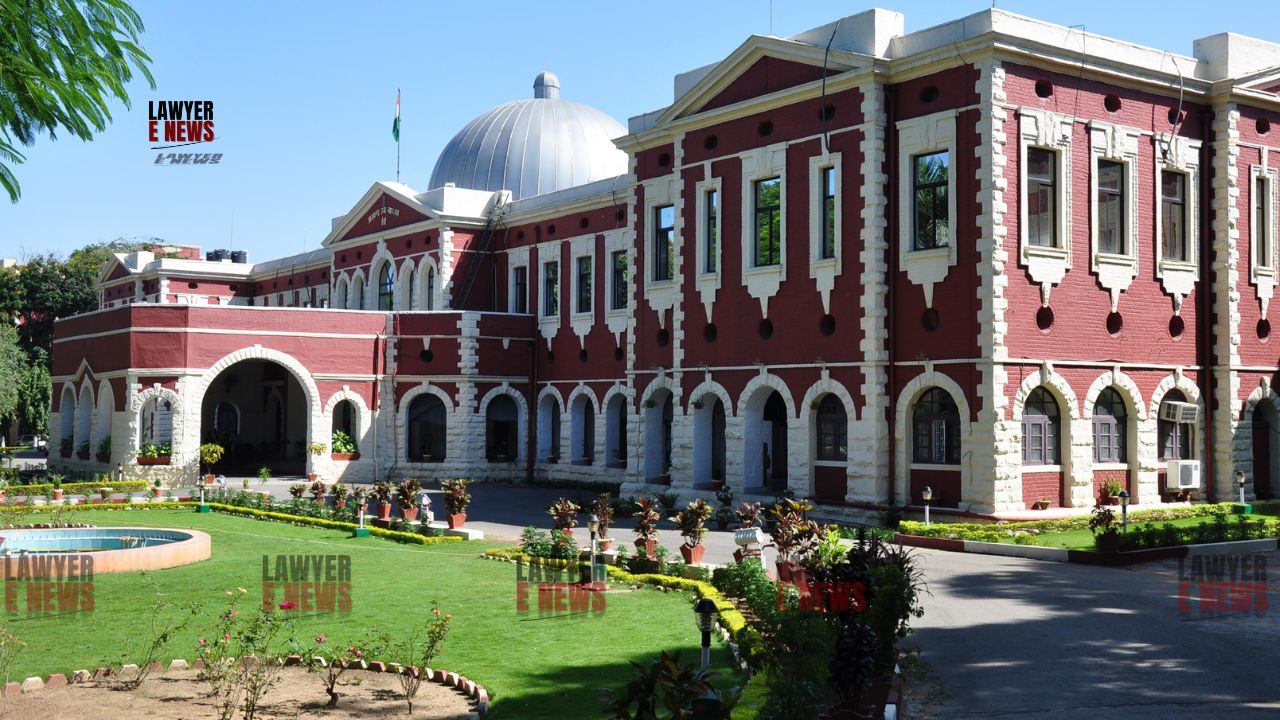-
by Admin
15 February 2026 2:16 AM



In a significant ruling, the Jharkhand High Court upheld the death sentence of Ram Chandra Thakur, convicted for the gruesome rape and murder of a 4-year-old girl. The judgment, delivered by a bench comprising Justices Gautam Kumar Choudhary and Ananda Sen, confirmed the trial court’s decision, citing compelling circumstantial evidence and the brutal nature of the crime. The court, however, acquitted the co-accused, Madhu Thakur, due to the lack of direct or circumstantial evidence against him.
The case involved the tragic death of a 4-year-old girl who went missing on March 26, 2018, after being taken away by Ram Chandra Thakur, a resident of Giridih, Jharkhand. The victim was last seen with Thakur by her sisters when they were fetching sacrificial meat during the Ram Navami festival. Despite a frantic search by her family, the child could not be found. Following his arrest, Thakur’s disclosure led to the recovery of the victim’s body in a nearby wheat field. A post-mortem revealed that the girl had been sexually assaulted and throttled to death.
Thakur was subsequently charged under Sections 364, 302, 201/34 of the IPC and Section 6 of the Protection of Children from Sexual Offences (POCSO) Act. The trial court sentenced him to death, which was referred to the High Court for confirmation.
Homicidal Death Established: The court concluded that the death was homicidal, as proven by the post-mortem examination conducted by a medical board comprising four doctors. The autopsy revealed several injuries, including lacerated wounds on the victim’s face, bruises on her neck, and a perineal tear consistent with a violent sexual assault. The court observed, "The tear in the present case shows the monstrosity and intensity of the sexual assault resulting in perineal tear of the infant child."
Witness Testimonies: The court relied heavily on the testimonies of the victim’s sisters, aged 7 and 9, who were consistent in their statements under Section 164 of the Cr.P.C., testifying that Thakur took their sister with him, promising to return her. The court found no contradictions in their accounts, stating, "I do not see any reason to disbelieve their account." The defense's argument that the witnesses were tutored was dismissed.
Circumstantial Evidence and Disclosure: Thakur’s guilt was further established through circumstantial evidence, particularly his "last seen" connection with the victim and his subsequent disappearance. His disclosure statement, which led to the recovery of the dead body, was deemed credible. The court ruled, "In the absence of any explanation to the incriminating circumstance, the charge against the appellant is proved without anything more."
DNA and Forensic Evidence: While the DNA report was inconclusive due to faulty sampling, the court held that this did not weaken the prosecution’s case. The presence of semen on the T-shirt found at the crime scene supported the charge of sexual assault.
Acquittal of Madhu Thakur: The court acquitted the co-accused, Madhu Thakur, noting that there was no evidence to prove his involvement in the crime. The court found the trial court’s judgment against him to be "perverse" and set it aside, citing a lack of circumstantial or direct evidence connecting him to the crime.
The judgment highlighted the guidelines for imposing capital punishment, as established in Bachan Singh v. State of Punjab and Machhi Singh v. State of Punjab. The court emphasized that the crime involved extreme brutality and was committed against a helpless 4-year-old girl, making it fall under the "rarest of rare" category. It stated, "An infant four years of age is raped by an adult aged 34 years… the criminal act is not an outcome of a burst of passion but is coldly planned and ruthlessly executed."
On the mitigating factors, the court found no reason to reduce the sentence, noting that the crime was not only heinous but also committed to seek vengeance for past enmity.
"The post mortem examination report thus establishes rape committed on the infant child resulting in third-degree perineal tear and the gruesome murder by throttling."
"This is a case which meets the sentencing guidelines… to inflict capital punishment."
The Jharkhand High Court’s decision reinforces the judiciary’s resolve to deliver stringent punishment in cases of sexual violence against minors. By upholding the death sentence for Ram Chandra Thakur, the court sends a clear message regarding the severity of such crimes. The acquittal of Madhu Thakur, however, underscores the importance of solid evidence in securing convictions. This landmark ruling is likely to serve as a precedent in future cases involving crimes of similar brutality.
Date of Decision: September 5, 2024.
State of Jharkhand v. Ram Chandra Thakur & Others
